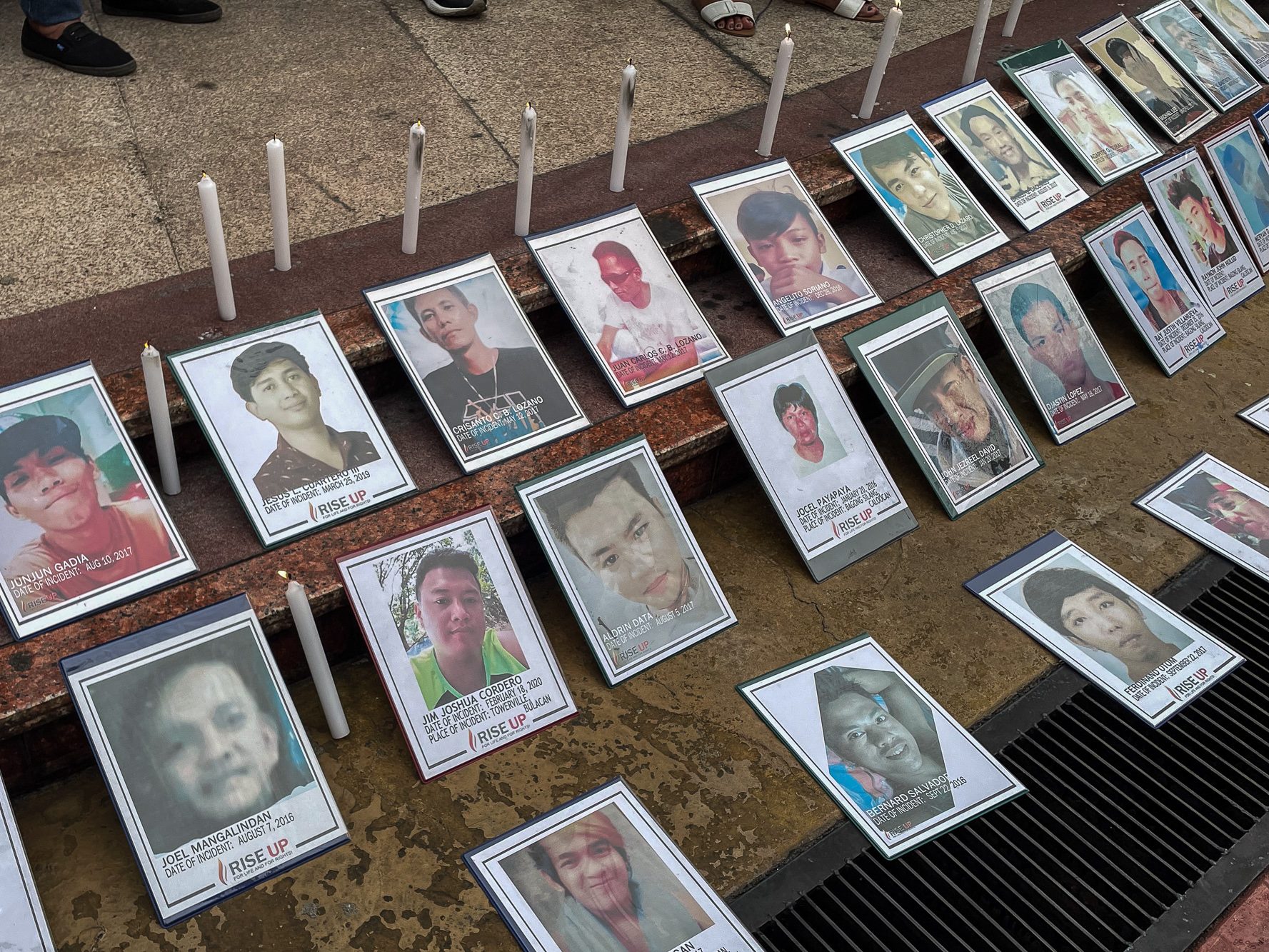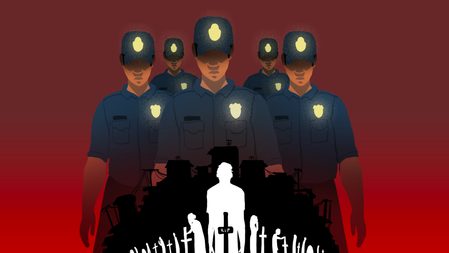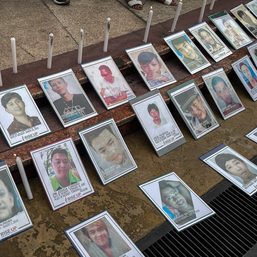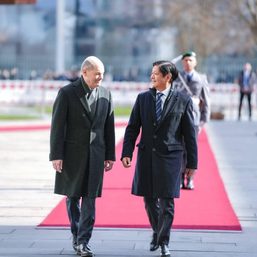SUMMARY
This is AI generated summarization, which may have errors. For context, always refer to the full article.

MANILA, Philippines – There is still a long road ahead, but human rights groups are positive that recent developments at the International Criminal Court (ICC) can help empower more drug war victims’ families to come forward and tell their stories.
The ICC appeals chamber on July 18, dismissed the appeal lodged by the Philippine government that sought to block an investigation into the killings in Davao City and under Rodrigo Duterte’s violent anti-illegal drug campaign.
Philippine Human Rights Information Center (PhilRights) executive director Nymia Pimentel-Simbulan said the decision of the ICC chamber “emboldened families to really pursue more justice-seeking activities” and that they expect more to join.
“In terms of active participations, cooperation of those left behind, this will surely escalate and kakalat ito sa iba pang mga pamilya na sa ngayon ay nagdadalawang isip pa (spread to other families who are still having second thoughts),” she said.
Duterte’s drug war killed at least 6,252 people in anti-illegal drug police operations between July 2016 and May 31, 2022. Groups, however, estimate the death toll to rise to between 27,000 to 30,000 if victims of vigilante-style killings are included.
Only a few have been convicted in drug war-related killings, including the policemen involved in the deaths of 17-year-old Kian delos Santos, Carl Angelo Arnaiz, and Reynaldo “Kulot” de Guzman. Duterte, the president who started everything, is yet to face any semblance of accountability.
“[This is what they see as the remaining] avenue for justice to be given to them, to address the injustice that was committed against their families,” Simbulan said.
PhilRights is one of the human rights groups that documented drug war killings while also supporting widows and orphans through livelihood and psychosocial projects.
Continued support
The ICC ruling is the latest development in relation to the court and Duterte’s war on drugs, which began in 2016, when then-prosecutor Fatou Bensouda said her office was monitoring what was happening in the country.
Since then, families have called on the ICC to investigate, even if they themselves become vulnerable to harassment and intimidation by local police. In the past years, Rappler gathered reports of incidents where authorities asked those left behind to sign waivers indicating that they will not pursue legal actions anymore.
These kinds of challenges are expected to unravel as positive developments continue at the international court. The Philippine Alliance of Human Rights Advocates (PAHRA) said communities are ready to help families address these challenges.
“Victims can expect that the support of the human rights community will be felt all throughout the process; it will not falter,” PAHRA secretary-general Rommel Yamzon said in Filipino, adding that the organization and its members plan to conduct regular visits and community-building with more families, among others.
But beyond human rights groups, Simbulan hopes that the Filipino public also find it in themselves to voice out their support for victims and their families, especially as they continue to fight for justice.
“More and more victims’ families are joining hands and taking on the cause of justice [and] their stories may be of loss and grief, but there is also an unfolding story of empowerment, tenacity, and a profound reclaiming of dignity,” Simbulan said. – Rappler.com
Add a comment
How does this make you feel?




![[EDITORIAL] Sorry Arnie Teves, walang golf sa kulungan](https://www.rappler.com/tachyon/2024/03/animated-arnie-teves-arrest-carousel.jpg?resize=257%2C257&crop=310px%2C0px%2C720px%2C720px)






![[OPINION] Rodrigo Duterte and his ‘unconditional love’ for China](https://www.rappler.com/tachyon/2024/04/rodrigo-duterte-xi-jinping-august-2019.jpeg?resize=257%2C257&crop=91px%2C0px%2C900px%2C900px)



![[The Slingshot] Lito Patay’s 4 hours and 38 minutes of infamy](https://www.rappler.com/tachyon/2024/07/Lito-Patay-4-hours-infamy-July-19-2024.jpg?resize=257%2C257&crop=233px%2C0px%2C720px%2C720px)



There are no comments yet. Add your comment to start the conversation.